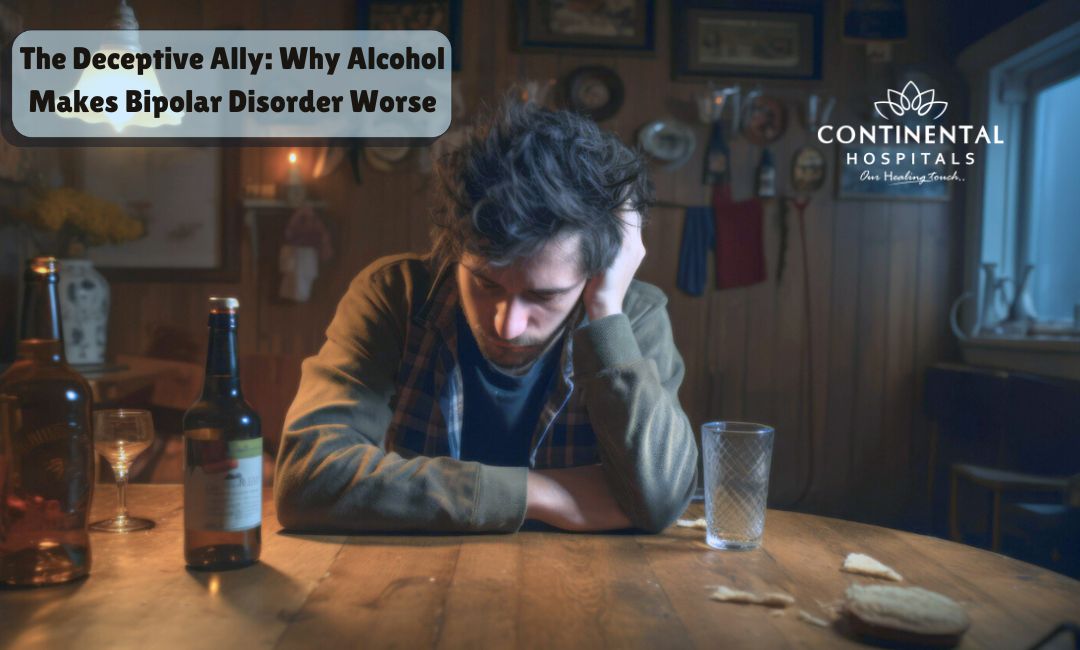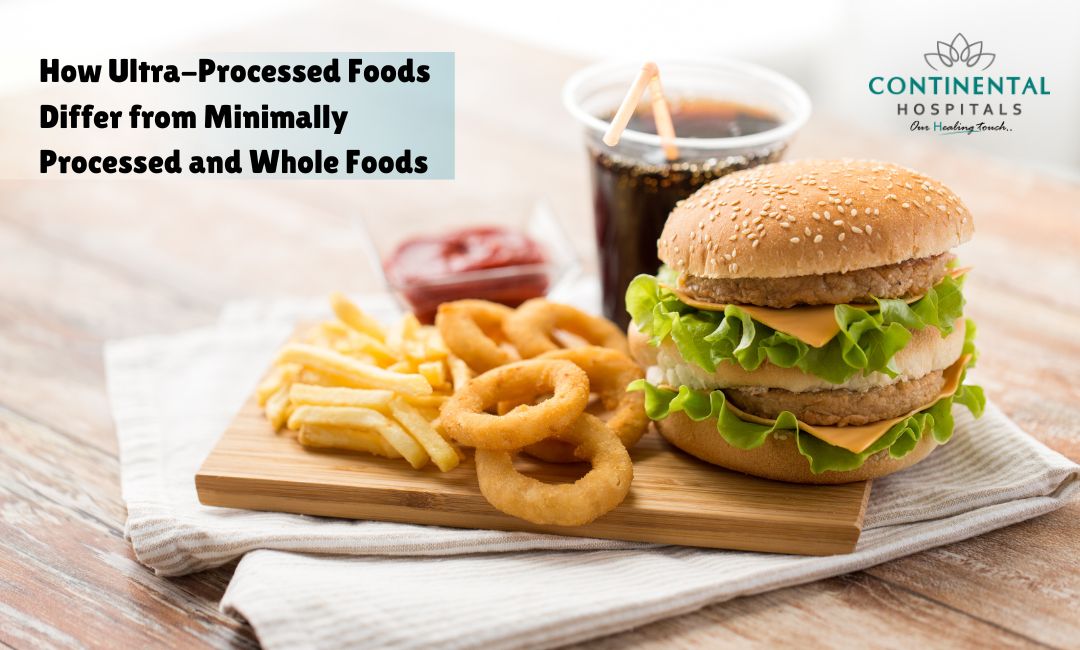Bipolar disorder is a complex mental health condition characterized by extreme mood swings, including episodes of mania (highs) and depression (lows). Managing this condition requires a nuanced approach that often involves medication, therapy, lifestyle adjustments, and support from loved ones. Despite the necessity of strict management, many individuals with bipolar disorder turn to alcohol, perhaps seeking temporary relief from their symptoms.Unfortunately, alcohol is a deceptive ally that often exacerbates the condition, leading to more severe and frequent mood episodes.
Understanding Bipolar Disorder
Bipolar disorder, previously known as manic-depressive illness, affects approximately 2.8% of adults in the United States. The disorder is marked by significant mood swings, including:
Manic Episodes: Characterized by high energy, reduced need for sleep, impulsive behavior, and sometimes psychosis.
Depressive Episodes: Characterized by low energy, feelings of hopelessness, difficulty concentrating, and suicidal thoughts.
The exact cause of bipolar disorder is unknown, but it's believed to be a combination of genetic, biochemical, and environmental factors. Effective treatment typically includes mood stabilizers, antipsychotic medications, psychotherapy, and lifestyle changes.
The Illusion of Relief: Alcohol and Bipolar Disorder
Temporary Euphoria vs. Long-term Harm
People with bipolar disorder might turn to alcohol during manic or depressive episodes for different reasons. During a manic episode, the impulsivity and lowered inhibition might lead to increased alcohol consumption. During depressive episodes, alcohol may be used as a coping mechanism to numb emotional pain. Initially, alcohol might provide a sense of relief or euphoria, but this is short-lived and often followed by negative consequences.
Alcohol acts as a depressant, impacting the central nervous system. It can temporarily elevate mood due to its initial stimulating effects, but as it metabolizes, it leads to a depressive state. For individuals with bipolar disorder, this can significantly worsen depressive episodes, leading to a vicious cycle of drinking to alleviate symptoms, which in turn exacerbates those very symptoms.
Disruption of Medication Efficacy
Managing bipolar disorder effectively usually requires a carefully monitored medication regimen. Alcohol can interfere with the metabolism and efficacy of these medications, rendering them less effective or even dangerous. For example, mood stabilizers like lithium can have their blood levels significantly altered by alcohol, leading to potential toxicity or reduced effectiveness.
Increased Risk of Suicide and Self-Harm
The combination of bipolar disorder and alcohol use significantly increases the risk of suicide and self-harm. Alcohol impairs judgment and lowers inhibitions, which can lead to impulsive decisions. For someone in a depressive or mixed episode, this can result in suicidal actions. Studies have shown that individuals with bipolar disorder who abuse alcohol are at a much higher risk of attempting suicide compared to those who do not.
Alcohol and Mood Swings
While alcohol may provide temporary relief from distressing symptoms, it can ultimately exacerbate mood swings in individuals with bipolar disorder. Alcohol is a central nervous system depressant, meaning it can intensify feelings of depression and lethargy. Moreover, alcohol can disrupt sleep patterns, exacerbating manic episodes or triggering depressive episodes.
The Biochemical Connection: How Alcohol Affects Bipolar Disorder
Neurochemical Imbalance
Bipolar disorder is often associated with imbalances in neurotransmitters such as serotonin, dopamine, and norepinephrine. Alcohol affects these same neurotransmitters, leading to further imbalance. During a manic episode, alcohol might increase dopamine levels, intensifying manic symptoms. Conversely, during depressive episodes, the depressant effect of alcohol on serotonin can worsen depressive symptoms.
Disruption of Sleep Patterns
Sleep disturbances are a hallmark of bipolar disorder, with mania causing reduced need for sleep and depression leading to hypersomnia or insomnia. Alcohol, while initially sedative, disrupts sleep architecture, particularly the REM sleep stage, leading to poor quality sleep. This disruption can trigger mood episodes, making it harder to manage the disorder effectively.
Breaking the Cycle: Managing Bipolar Disorder Without Alcohol
Education and Awareness
Education about the harmful effects of alcohol on bipolar disorder is crucial. Individuals need to understand that while alcohol might seem like a quick fix, it ultimately worsens their condition. Healthcare providers should emphasize this during consultations and provide resources for better coping mechanisms.
Alternative Coping Mechanisms
Developing healthier coping mechanisms is essential. This can include:
Therapy: Cognitive-behavioral therapy (CBT) and dialectical behavior therapy (DBT) can provide tools for managing stress and emotions.
Support Groups: Connecting with others who understand the challenges of bipolar disorder can provide comfort and practical advice.
Exercise: Physical activity is a natural mood booster and can help regulate sleep patterns.
Professional Help for Substance Abuse
For individuals struggling with both bipolar disorder and alcohol use, seeking professional help for substance abuse is critical. Integrated treatment plans that address both conditions simultaneously have been shown to be more effective than treating each separately.
Conclusion
Alcohol may seem like an ally in managing the intense emotions associated with bipolar disorder, but it is a deceptive one. Its short-term relief is overshadowed by the long-term harm it causes, exacerbating mood swings, interfering with treatment, and increasing the risk of dangerous behaviors. Understanding the detrimental effects of alcohol on bipolar disorder and adopting healthier coping strategies can pave the way for better management of this challenging condition. By breaking the cycle of alcohol use, individuals with bipolar disorder can achieve more stable and fulfilling lives.
Recent Posts
-
Top Nutrients for Skin Health and Radiance
Fri, 28 Jun 2024 -
How Nutrition Impacts Skin Aging
Fri, 28 Jun 2024 -
10 Best Fruits for Healthy and Glowing Skin
Fri, 28 Jun 2024
.webp)







